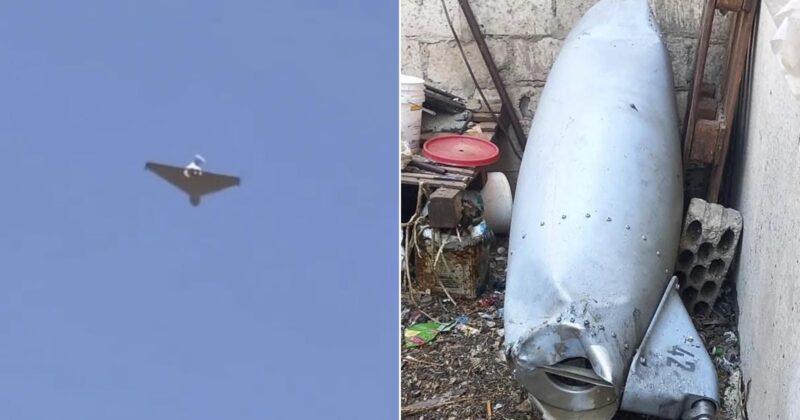Iran has launched more than 100 drones toward Israel in retaliation for the Jewish state’s latest effort to destroy Tehran’s nuclear program through a wave of preemptive airstrikes.
“In recent hours, Iran has launched more than 100 drones toward Israeli territory,” IDF spokesman Brigadier General Effie Defrin confirmed Friday.
“We are working to intercept the threats.”
An IDF spokesperson said that the military is in “control over the situation” and that the Israeli Air Force has been actively shooting down drones at the border, according to the Times of Israel.
Drones have yet to cross into Israeli territory, the IDF confirmed.
The retaliation attack comes after Israel’s Operation “Rising Lion” targeted several sites across the Iranian capital to dismantle the country’s nuclear infrastructure, ballistic missile factories, and military facilities Thursday night.
Prime Minister Benjamin Netanyahu said the mission was carried out to prevent Iran from obtaining nuclear weapons and to ensure the “survival” of Israel, after decades of Iranian leaders “brazenly” calling for his country’s destruction.
“We can’t leave these threats for the next generation,” Netanyahu said during an address shared on YouTube.
“Because if we don’t act now, there will not be another generation. If we don’t act now, we simply won’t be here. We have internalized the lessons of history. When an enemy says he intends to destroy you — believe him,” he continued.
“When the enemy develops the capabilities to destroy you — stop him.”
Netanyahu vowed to continue strikes “for as many days as it takes to remove this threat.”
The IDF said that approximately 200 Israeli fighter jets participated in the operation, targeting around 100 sites.
The Jewish state targeted Iran’s main nuclear enrichment facility in Natanz, which Netanyahu called “the heart of Iran’s ballistic missiles program.”
Iran confirmed the facility was damaged in the strike, but no nuclear radiation or chemical contamination has occurred.
The chief of staff of Iran’s armed forces, Major Gen. Mohammad Bagheri, the head of Iran’s Revolutionary Guard, Gen. Hossein Salami, and the head of the Khatam-al Anbiya Central Headquarters, Gholam Ali Rashid, were killed in the strikes, according to Iranian state media.
Six nuclear scientists were also killed.
Supreme Leader Ayatollah Ali Khamenei vowed that Israel would face a “severe punishment” and “should await a harsh response.”
Israel “opened its wicked and blood-stained hand to commit a crime against our beloved country, revealing its malicious nature more than ever by striking residential centers,” Khamenei said in a statement on the state-run IRNA news agency.
Israeli Defense Minister Israel Katz announced the military would “continue its activities to thwart the Iranian nuclear program and remove threats on the State of Israel.”
“The precise hit on the heads of the commanders of the Revolutionary Guards, the Iranian army and the nuclear scientists, who were all involved in promoting the plan to destroy Israel, is a strong and clear message — those who work to destroy Israel will be eliminated,” Katz said.
For years, Israel has feared and alleged that Iran was secretly trying to weaponize enriched uranium.
Earlier Thursday, the International Atomic Energy Agency (IAEA) — a global nuclear watchdog that has been overseeing Iran’s nuclear program — announced for the first time in 20 years that Iran had breached its non-proliferation obligations and was not working with its inspectors.
Iran immediately announced it would establish a third enrichment site “in a secure location” and that “other measures are also being planned.”
IAEA Director General Rafael Mariano Grossi wrote in a statement to the Board of Governors on Monday that “the Agency found man-made uranium particles at each of three undeclared locations in Iran – at Varamin, Marivan and Turquzabad – at which we conducted complementary access in 2019 and 2020.”
“Since then, we have been seeking explanations and clarifications from Iran for the presence of these uranium particles, including through a number of high-level meetings and consultations in which I have been personally involved,” Grossi wrote.
“Unfortunately, Iran has repeatedly either not answered, or not provided technically credible answers to, the Agency’s questions. It has also sought to sanitize the locations, which has impeded Agency verification activities.”
Iran has repeatedly denied ever having pursued nuclear weapons.

